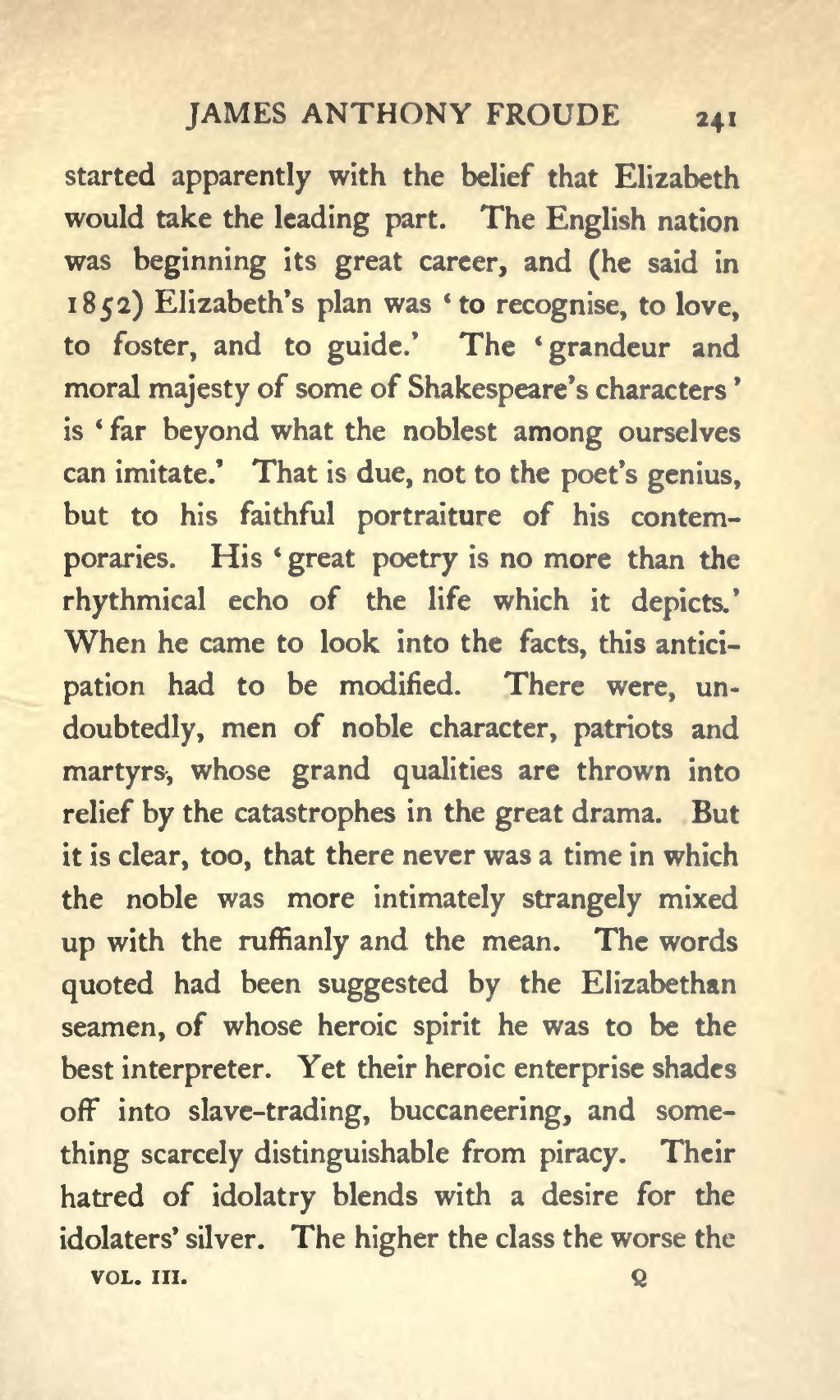started apparently with the belief that Elizabeth would take the leading part. The English nation was beginning its great career, and (he said in 1852) Elizabeth's plan was 'to recognise, to love, to foster, and to guide.' The 'grandeur and moral majesty of some of Shakespeare's characters' is 'far beyond what the noblest among ourselves can imitate.' That is due, not to the poet's genius, but to his faithful portraiture of his contemporaries. His 'great poetry is no more than the rhythmical echo of the life which it depicts.' When he came to look into the facts, this anticipation had to be modified. There were, undoubtedly, men of noble character, patriots and martyrs, whose grand qualities are thrown into relief by the catastrophes in the great drama. But it is clear, too, that there never was a time in which the noble was more intimately strangely mixed up with the ruffianly and the mean. The words quoted had been suggested by the Elizabethan seamen, of whose heroic spirit he was to be the best interpreter. Yet their heroic enterprise shades off into slave-trading, buccaneering, and something scarcely distinguishable from piracy. Their hatred of idolatry blends with a desire for the idolaters' silver. The higher the class the worse the
Page:Studies of a Biographer 3.djvu/253
This page has been validated.
JAMES ANTHONY FROUDE
241
